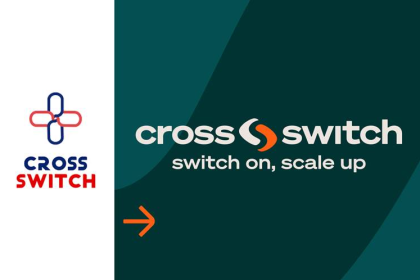By Gillian Darko, Chief of Staff and Director of Strategy
The proposed cryptocurrency regulation, scheduled for rollout by September 2025, is expected to unlock a wave of innovation and investment in the country’s burgeoning FinTech ecosystem, according to Yellow Card, one of Africa’s leading digital asset platforms.
The Bank of Ghana’s move to introduce a legal framework for virtual asset service providers (VASPs) builds on its August 2024 digital assets policy and marks a significant shift toward formalizing the country’s digital finance landscape.
For players like Yellow Card, which operates in 20 African markets and holds licenses in jurisdictions such as South Africa and Botswana, the long-anticipated regulations will provide operational clarity and reinforce industry credibility.
“This is a significant and welcome development,” said Gillian Darko, Chief of Staff and Director of Strategy at Yellow Card. “Stablecoins and other digital assets are no longer theoretical. They’re already being used every day by individuals and businesses in Ghana to manage currency risk and facilitate cross-border payments.”
Darko said the regulations would legitimize an already active market.
Data from Chainalysis and other platforms show that crypto adoption is rising in Ghana, with users turning to blockchain-based solutions for real-world use cases, particularly in remittances and inflation hedging.
The Bank of Ghana Governor, Johnson Asiama, revealed during the recent IMF/World Bank Spring Meetings in Washington that the central bank is working towards launching the regulatory regime by the third quarter of 2025.

The implementation of these rules is dependent on the passage of a Virtual Asset Service Providers Act, which would empower the BoG to license and supervise VASPs. As part of the plan, a dedicated digital assets unit will be established to enforce the new measures.
“This is a technology we cannot prevent, hence the need to move fast to regulate it,” Dr. Asiama said.
Industry stakeholders are optimistic that the framework will position Ghana as a digital finance hub in Africa. Yellow Card’s Director noted that many FinTech companies have spent the last few years preparing for this shift by enhancing compliance protocols and risk management systems.
The expectation is that regulation will usher in a more stable environment for innovation and growth. A defined legal framework, proponents argue, will boost investor confidence, encourage responsible business practices, and eliminate bad actors from the ecosystem.
“If the Bank of Ghana gets this right, the country could become a leader in the African digital asset ecosystem,”
Gillian Darko, Chief of Staff and Director of Strategy at Yellow Card
“It creates a level playing field,” Ms. Darko said, adding that companies with strong standards for anti-money laundering (AML), cybersecurity, and consumer protection will stand out in a regulated space.
Beyond enforcement, the potential long-term benefit lies in Ghana’s ability to attract global investment and lead digital asset innovation on the continent. The move is reminiscent of the impact of Ghana’s earlier Cash-Lite Strategy, which catalyzed financial inclusion and reshaped digital payments.
To ensure the regulatory regime supports innovation while safeguarding the financial system, Yellow Card is advocating for a few key elements in the final framework.
Among them: clearly defined asset classifications, proportional compliance obligations tailored to the size and risk of firms, and mechanisms for continuous stakeholder engagement.
The firm is also pushing for innovation-supportive policies such as regulatory sandboxes and research incentives.
Ms.Darko emphasized that as a player subjected to rigorous compliance standards in the U.S. and Europe, Yellow Card is well-positioned to align with any rules Ghana introduces. She stressed the importance of ensuring the regulations are future-proof and inclusive.
“If the Bank of Ghana gets this right, the country could become a leader in the African digital asset ecosystem,” she said.
The BoG’s decision to move ahead with regulation reflects a broader continental trend, as central banks across Africa grapple with how best to harness the opportunities of digital finance while managing associated risks. Ghana’s latest policy stance signals its intention to be at the forefront of this evolution.










